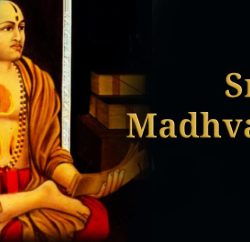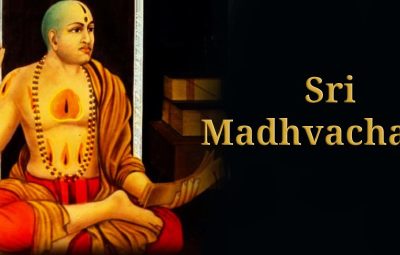There are offenses to be considered while chanting the Hare Krishna mantra. Therefore, simply by chanting Hare Krsna, one does not become ecstatic. ( Cc. Adi-lila 8.24)
1) To blaspheme the devotees who have dedicated their lives for propagating the holy name of the Lord.
2) To consider the names of demigods like Lord Shiva or Lord Brahma to be equal to or independent of the name of the Lord Vishnu.
3) To disobey the orders of the spiritual master.
4) To blaspheme the vedic scriptures or scriptures in pursuance to the vedic version.
5) To consider the glories of chanting Hare Krishna to be an imagination.
6) To give some interpretations to the holy name of the Lord.
7) To commit sinful activities on the strength of the holy name.
8) To consider the chanting of Hare Krishna as one of the auspicious ritualistic activities which are offered in the Vedas as frutive activities (Karma kanda).
9) To instruct a faithless person about the glories of the holy name
10) To not have complete faith in the chanting of the holy name and to maintain material attachments, even after understanding so many instructions on this matter. It is also an offense to be inattentive while chanting.
Every devotee who claims to be Vaishnava must guard against these offenses in order to quickly achieve the desired success KRISHNA PREMA!!!
vancha-kalpatarubhyash cha
kripa-sindubhya eva cha
patitanam pavanabhyo
vaishnavebhyo namo namaha
Let us offer our humble obeisances to all the Vaishnava devotees of the Lord, who are just like desire tress, who can fulfill all desires and are full of compassion for the fallen conditioned souls.
‘kṛṣṇa-nāma’ kare aparādhera vicāra
kṛṣṇa balile aparādhīra nā haya vikāra
There are offenses to be considered while chanting the Hare Krishna mantra. Therefore simply by chanting Hare Krishna one does not become ecstatic.
It is very beneficial to chant the names sri-krsna-caitanya-prabhu-nityananda before chanting the Hare Krsna mantra because by chanting these two holy names sri-krsna-caitanya-prabhu-nityananda one immediately becomes ecstatic, and if he then chants the Hare Krishna mantra he becomes free of offenses.
There are ten offenses to avoid in chanting the Hare Krsna maha-mantra. The first offense is to blaspheme great personalities who are engaged in distributing the holy name of the Lord. It is said in the sastra (Cc. Antya 7.11), krsna-sakti vina nahe tara pravartana: one cannot distribute the holy names of the Hare Krsna maha-mantra unless he is empowered by the Supreme Personality of Godhead. Therefore one should not criticize or blaspheme a devotee who is thus engaged.
Śrī Padma Purāṇa states:
satāṁ nindā nāmnaḥ paramam aparādhaṁ vitanute
yataḥ khyātiṁ yātaṁ katham u sahate tad-vigarhām
To blaspheme the great saintly persons who are engaged in preaching the glories of the Hare Krsna maha-mantra is the worst offense at the lotus feet of the holy name. One should not criticize a preacher of the glories of the Hare Krsna maha-mantra. If one does so, he is an offender. The Nama-prabhu, who is identical with Krsna, will never tolerate such blasphemous activities, even from one who passes as a great devotee.
The second nāmāparādha is described as follows:
śivasya śrī-viṣṇor ya iha guṇa-nāmādi-sakalaṁ
dhiyā bhinnaṁ paśyet sa khalu hari-nāmāhita-karaḥ
In this material world, the holy name of Visnu is all-auspicious. Viṣṇu’s name, form, qualities and pastimes are all transcendental, absolute knowledge. Therefore, if one tries to separate the Absolute Personality of Godhead from His holy name or His transcendental form, qualities and pastimes, thinking them to be material, that is offensive. Similarly, to think the names of demigods such as Lord Śiva to be as good as the name of Lord Visnu, or, in other words, to think Lord Śiva and the other demigods to be other forms of God and therefore equal to Visnu,is also blasphemous. This is the second offense at the lotus feet of the Lord.
The third offense at the lotus feet of the holy name, which is called guror avajna, is to consider the spiritual master to be material and therefore envy his exalted position. The fourth offense (sruti-sastra-nindanam) is to blaspheme Vedic scriptures such as the four Vedas and the Puraṇas. The fifth offense (artha-vadah) is to consider the glories of the holy name to be exaggerations. Similarly, the sixth offense (hari-namni kalpanam) is to consider the holy name of the Lord to be imaginary.
The seventh offense is described as follows:
nāmno balād yasya hi pāpa-buddhir
na vidyate tasya yamair hi śuddhiḥ
To think that since the Hare Krsna maha-mantra can counteract all sinful reactions one may therefore go on with his sinful activities and at the same time chant the Hare Krsna maha-mantra to neutralize them is the greatest offense at the lotus feet of hari-nama.
The eighth offense is stated thus:
dharma-vrata-tyāga-hutādi-sarva-
śubha-kriyā-sāmyam api pramādaḥ
It is offensive to consider the chanting of the Hare Krsna maha-mantra to be a religious ritualistic ceremony. Performing religious ceremonies, following vows and practicing renunciation and sacrifice are all materialistic auspicious activities. The chanting of the Hare Krsna maha-mantra must not be compared to such materialistic religiosity.This is an offense at the lotus feet of the Lord.
The ninth offense is described as follows:
aśraddadhāne vimukhe ‘py aśṛṇvati
yaś copadeśaḥ śiva-nāmāparādhaḥ
It is an offense to preach the glories of the holy name among persons who have no intelligence or no faith in the subject matter. Such people should be given the chance to hear the chanting of the Hare Krsna maha-mantra, but in the beginning they should not be instructed about the glories or the spiritual significance of the holy name. By constant hearing of the holy name, their hearts will be purified, and then they will be able to understand the transcendental position of the holy name.
The tenth offense is as follows:
śrute ‘pi nāma-māhātmye yaḥ prīti-rahito naraḥ
ahaṁ-mamādi-paramo nāmni so ‘py aparādha-kṛt
If one has heard the glories of the transcendental holy name of the Lord but nevertheless continues in a materialistic concept of life, thinking “I am this body and everything belonging to this body is mine [aham mameti],” and does not show respect and love for the chanting of the Hare Krsna maha-mantra, that is an offense.










